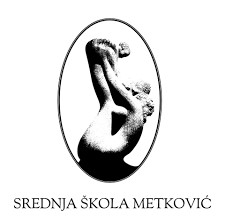
School information
- School name
- Srednja skola Metkovic
- School year
- 2020-2021
- City
- Metkovic
- Country
- Croatia
- Sea basin
- Mediterranean Sea
- Region
- Coastal: <20 km from the sea
Project information
- Starting date of the project
- End date of the project
- Level of education
- Senior High School
- Project website
- Categories
- Maritime CultureHealthy OceanFood from the Ocean
Having implemented first the search about Macrophytes,physical factors on the beach of Vis island,and use of the“Blue Bag” for the debris,students are going to analyze and determine the primary existence of Polyethylene in the shower,scrubs,and cosmetics used as abrading mediums or simply fillers which pose a huge threat to our food chain.They will make their own sustainable sample of a good scrub not containing “exfoliating microbeads”.Instead,their cosmetics will be a plastic-free product with the ingredients of fruit (apricot) ground seeds instead of microbeads.They will prove that microplastics are accumulated in different species,especially in fish,so the toxins are passed on all along the food chain.Students and teachers suggest using edible grass plates and wooden cutlery vs single-use plastics.Wooden cutlery will be made in the local carpentry workshop.Also,the classroom with tailoresses students pledges to sew our reusable jeans into bags along on shopping trips (photo of the “Exhibition Recycle Idea” will be enclosed in the presentation).Finished promotional bags will be displayed on the main school board.Finally,the school will be involved in making the” Eco School Project” exhibition at our hall.Thus,students also want to widen it focusing on creating waste into sustainable materials like water purifiers,popcorn machines,old windmills,beach lodge models,and flashlights made out of plastic bottles.The scope of the ecocritical concept will end up in the quiz back into the school staff room(“Eco-Tourism Quiz”).The quiz promotes cultural and educational exchange by WWOOFING (World Wide Opportunities on Organic Farms),building a global community conscious of ecological farming and sustainability practices.Saying this way NO to plastic,students and teachers intend to involve the staff and the community to be encouraged and to boost their responsibility.One part of the classroom team will be engaged to make a short film about plastics worldwide and in our local area,ensuring that our thought “Think global,act local” targets audiences.
Gallery



